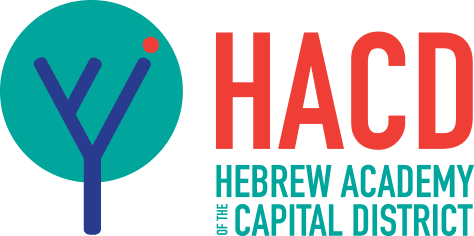This week, I had the opportunity to share with the Dolphinim and the Nesharim some of my family’s Haggadot. I was especially proud to share my child Gabriella Spitzer’s Haggadah Min HaMeitzar הַגָּדָה מִן הַמֵּצַר–Gabriella used to live in Albany, and it was nice to share their work. I also shared a pop-up haggadah that used and adapted illustrations from the Bird’s Head Haggadah. I explained that under the influence of Islam, the author of the original haggadah drew the Jews with birds heads because they didn’t want to portray human heads which would have been a reflection of the image of God/tzelem Elohim/צֶלֶם אֱ-לֹהִים. Then when we saw a pop up version of an Egyptian striking a Jew, the students asked why the Egyptian didn’t have a bird’s head. I responded that the illustrator probably didn’t imagine that Egyptians reflected God’s image. “That’s not nice” the student replied. Indeed.
The main point of the seder is the statement
|
In every generation, a person is obligated to see him/herself as if s/he has gone out of Egypt, as it says, “And you will tell your child on that day saying: ‘because of this which God did for me when I went out of Egypt’ (Exodus 13:8)” |
בְּכָל דּוֹר וָדוֹר חַיָּב אָדָם לִרְאוֹת אֶת עַצְמוֹ כְּאִלוּ הוּא יָצָא מִמִּצְרַיִם, שֶׁנֶּאֱמַר: “וְהִגַּדְתָּ לְבִנְךָ בַּיוֹם הַהוּא לֵאמֹר: בַּעֲבוּר זֶה עָשָׂה יְיָ לִי בְּצֵאתִי מִמִּצְרָיִם” (שמות יג ח). |
As I shared this insight, I showed my students the page from the David Moss Haggadah which illustrates this theme with two dozen images of Jews in different clothing representing the diversity of Jewish experience. And mixed among those images are little mirrors. As you look at that page, you see a partial reflection of your own face, mixed in with the faces of Jews from every other generation. I love that image, and in addition to having it in the Moss Haggadah, we have it framed in our dining room to remind us of it all year long. The students also loved that page and each one took the time to see him/herself in the pages of the haggadah, to see him/herself as a reflection of all of the previous generations of Jews who saw themselves as a reflection of the generations that preceded them in experiencing redemption.
I noticed, a bit too late to share with the students, that the language of haggadah is chayav Adam חַיָּב אָדָם, not chayav Yisrael/חַיָּב יִשְׂרָאֵל. A person obligated to experience the Exodus and redemption from Egypt, not “a Jew is obligated to experience the Exodus and redemption from Egypt.” Of course, David Moss’s illustration is correct–we see ourselves as reflections of previous generations of Jews, all of us telling and retelling our story. It is our story, but the language of “a person is obligated” reminds us that it is not only our story.
There is another reading of this text, a more universal reading, that urges us to acknowledge that God redeemed us from Egypt not just because God did not want us to be slaves, but because our story would serve as a model for redemption and freedom for all people. Cantor Jeff Klepper wrote this beautiful interpretation and expansion of the haggadah’s central message.
B’chol Dor VaDor by Jeff Klepper and Dan Freelander (1996)
B’-chol dor va-dor, in every generation
We must look upon ourselves as if from slavery we were freed
B’-chol dor va-dor, in every generation
We must look around and help all the ones who are in need
CHORUS: B’-chol dor va-dor cha-yav a-dam, lir-ot et atz-mo
k’-i-lu hu ya-tza mi-mitz-ra-yim
B’-chol dor va-dor, in every generation
We must lend a helping hand to the stranger and the friend
B’-chol dor va-dor, in every generation
Are the righteous of all nations on whom we all depend (chorus)
B’-chol dor va-dor, in every generation
We must learn from our mistakes, we must find a better way
B’-chol dor va-dor, in every generation
Is the hope that with tomorrow will come a better day
B’-chol dor va-dor a-nu cha-ya-vim lir-ot et atz-mei-nu
K’-i-lu a-nach-nu, a-nach-nu ya-tza-nu mi-mitz-ra-yim!
Redemption is not just about our experience, but our obligation to help others, our reliance on others who help us, and our efforts to improve the world and our time on it.
This song, and several others are included in a selection of songs for seder which we use at our seder. Feel free to print them up and use them at your seder.
Shabbat Shalom,
Jeffrey Spitzer
